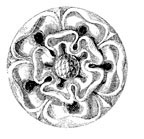
It’s Time the Church Declared the Personhood of the Unborn
A DOCTRINE BEGGING TO BE DEVELOPED
“A person’s a person no matter how small.” That’s the famous line from Horton Hears a Who (1954), Dr. Seuss’s children’s tale of an elephant concerned for the welfare of the Whos, the tiny, invisible-to-the-naked-eye inhabitants of Whoville. Too bad Seuss himself didn’t really believe that. According to his biographer Philip Nel, Seuss never intended his story to be interpreted as a pro-life statement. Indeed, Seuss even threatened to sue a Colorado pro-life group for using the line on its stationery. His widow, Audrey Geisel, a supporter of Planned Parenthood, spoke out against people “hijacking his work to support their own agendas.”
Dr. Seuss notwithstanding, Horton succinctly uttered what the pro-life movement believes: “A person’s a person no matter how small.” Strangely, when given the opportunity, Pope Francis could not bring himself to make such a simple affirmation.
This past November, Francis was interviewed at his residence at Santa Marta in the Vatican. In the interview, published in America magazine (Nov. 28, 2022), the Holy Father said:
In any book of embryology it is said that shortly before one month after conception the organs and the DNA are already delineated in the tiny fetus, before the mother even becomes aware. Therefore, there is a living human being. I do not say a person, because this is debated, but a living human being. And I raise two questions: Is it right to get rid of a human being to resolve a problem? Second question: Is it right to hire a “hit man” to resolve a problem? The problem arises when this reality of killing a human being is transformed into a political question, or when a pastor of the church uses political categories.
So, the Pope affirms that the unborn child is a human being, yet in the next breath he says he cannot affirm that the unborn child is a person. What’s the difference?
The dictionary definitions of human being and person overlap. Merriam-Webster defines a human being as “an individual of the species of primate mammal that walks on two feet…and is distinguished by a greatly developed brain with capacity for speech and abstract reasoning.” It defines a person as “an individual human being; esp. a human being as distinguished from an animal or a thing.”
You May Also Enjoy
The heart of his greatness was beyond any culture, because it came from his union, in prayer, with his Lord and the Lord's Blessed Mother.
During the days when the Romans ruled the known world, only a few peculiar groups kept and raised all their children. Have times changed much?
The home, the sacred and productive realm of women, was made obsolete. For children the sacred space of home for growing, learning, and loving rapidly disappeared.

